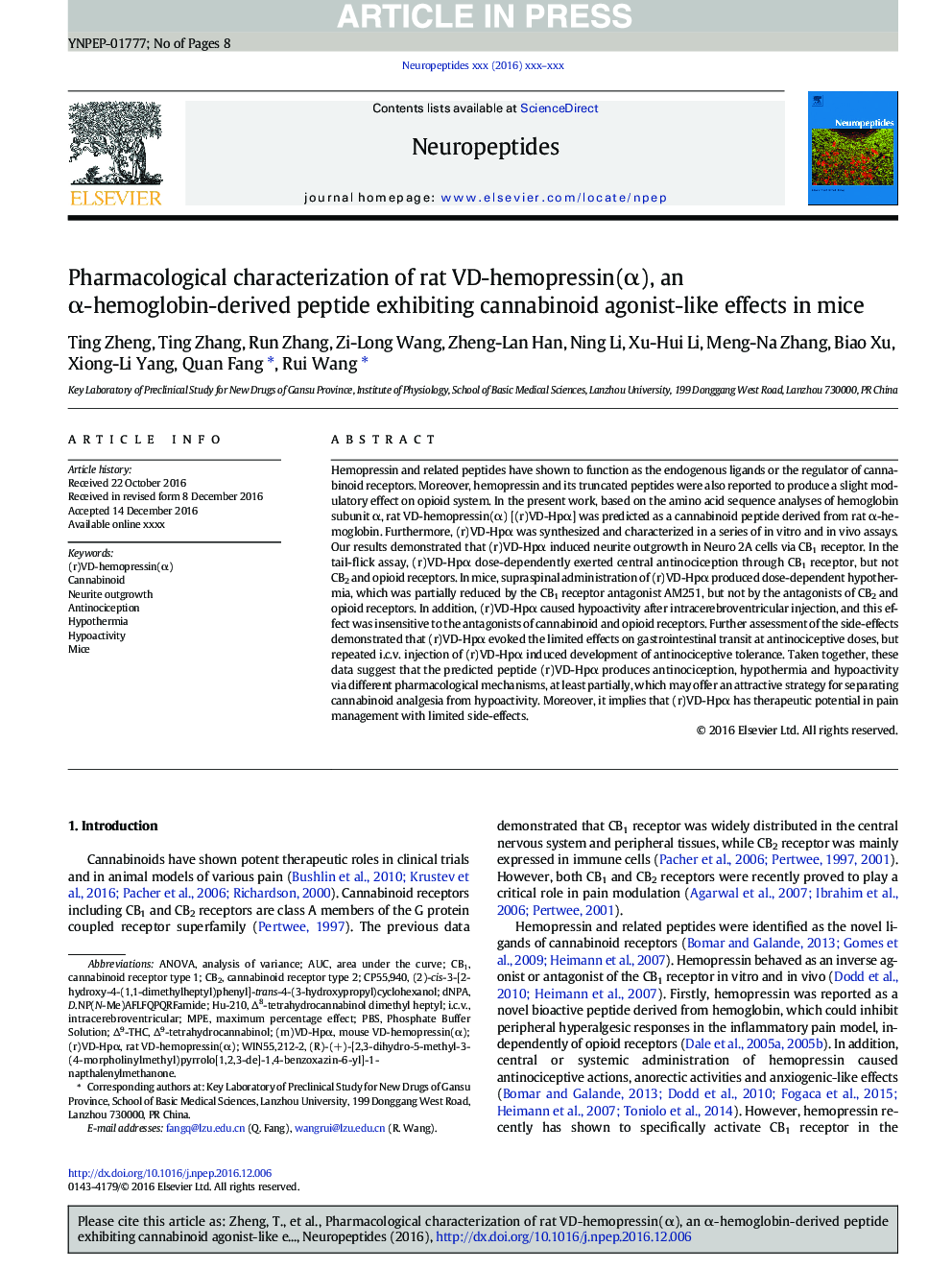| Article ID | Journal | Published Year | Pages | File Type |
|---|---|---|---|---|
| 8633664 | Neuropeptides | 2017 | 8 Pages |
Abstract
Hemopressin and related peptides have shown to function as the endogenous ligands or the regulator of cannabinoid receptors. Moreover, hemopressin and its truncated peptides were also reported to produce a slight modulatory effect on opioid system. In the present work, based on the amino acid sequence analyses of hemoglobin subunit α, rat VD-hemopressin(α) [(r)VD-Hpα] was predicted as a cannabinoid peptide derived from rat α-hemoglobin. Furthermore, (r)VD-Hpα was synthesized and characterized in a series of in vitro and in vivo assays. Our results demonstrated that (r)VD-Hpα induced neurite outgrowth in Neuro 2A cells via CB1 receptor. In the tail-flick assay, (r)VD-Hpα dose-dependently exerted central antinociception through CB1 receptor, but not CB2 and opioid receptors. In mice, supraspinal administration of (r)VD-Hpα produced dose-dependent hypothermia, which was partially reduced by the CB1 receptor antagonist AM251, but not by the antagonists of CB2 and opioid receptors. In addition, (r)VD-Hpα caused hypoactivity after intracerebroventricular injection, and this effect was insensitive to the antagonists of cannabinoid and opioid receptors. Further assessment of the side-effects demonstrated that (r)VD-Hpα evoked the limited effects on gastrointestinal transit at antinociceptive doses, but repeated i.c.v. injection of (r)VD-Hpα induced development of antinociceptive tolerance. Taken together, these data suggest that the predicted peptide (r)VD-Hpα produces antinociception, hypothermia and hypoactivity via different pharmacological mechanisms, at least partially, which may offer an attractive strategy for separating cannabinoid analgesia from hypoactivity. Moreover, it implies that (r)VD-Hpα has therapeutic potential in pain management with limited side-effects.
Keywords
Related Topics
Life Sciences
Biochemistry, Genetics and Molecular Biology
Endocrinology
Authors
Ting Zheng, Ting Zhang, Run Zhang, Zi-Long Wang, Zheng-Lan Han, Ning Li, Xu-Hui Li, Meng-Na Zhang, Biao Xu, Xiong-Li Yang, Quan Fang, Rui Wang,
